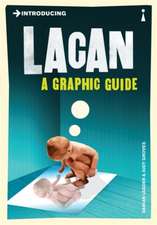Psychoanalysis in Transition: A Personal View
Autor Merton M. Gillen Limba Engleză Paperback – mai 2000
| Toate formatele și edițiile | Preț | Express |
|---|---|---|
| Paperback (1) | 350.02 lei 6-8 săpt. | |
| Taylor & Francis – mai 2000 | 350.02 lei 6-8 săpt. | |
| Hardback (1) | 906.48 lei 6-8 săpt. | |
| Taylor & Francis – 20 apr 2017 | 906.48 lei 6-8 săpt. |
Preț: 350.02 lei
Preț vechi: 368.43 lei
-5% Nou
Puncte Express: 525
Preț estimativ în valută:
66.97€ • 70.12$ • 55.42£
66.97€ • 70.12$ • 55.42£
Carte tipărită la comandă
Livrare economică 05-19 aprilie
Preluare comenzi: 021 569.72.76
Specificații
ISBN-13: 9780881633351
ISBN-10: 0881633356
Pagini: 198
Dimensiuni: 152 x 229 x 11 mm
Greutate: 0.27 kg
Ediția:1
Editura: Taylor & Francis
Colecția Routledge
Locul publicării:Oxford, United Kingdom
ISBN-10: 0881633356
Pagini: 198
Dimensiuni: 152 x 229 x 11 mm
Greutate: 0.27 kg
Ediția:1
Editura: Taylor & Francis
Colecția Routledge
Locul publicării:Oxford, United Kingdom
Public țintă
Professional and Professional Practice & DevelopmentCuprins
Constructivism and Hermeneutics. The Internal and External. One-Person and Two-Person Psychology. Neutrality. Psychoanalysis and Psychotherapy. Free Association and the Analytic Process. What Analysts Say and Do. Theory and Technique. The Body in Psychoanalysis. Conclusion.
Recenzii
"For those of us who grew up in the psychoanalysis of the 60s and 70s, Merton Gill's formulation of psychoanalytic theory was psychoanalytic theory - the definitive statement. Much has happened in psychoanalysis since that time - the challenge to metapsychology, the expansion of object relations approaches, the development of self psychology, the reformulation of transference and countertransference, and the debates about hermeneutics, constructivism, and one-person and two-person psychologies. Merton Gill has been central in these dialogues, bringing his familiar scholarship, clarity of thought, and commitment to balanced and open-minded exploration of new ideas to discussions that were so often obscured by ideological prejudices and religious convictions. In the process Gill's views have evolved; indeed his own contributions from the past are often the strongest arguments that can be raised against his new ideas. He has become far more focused on the clinical process - psychoanalytic theory as a tool for the analyst at work. He is far more sensitive to the patient's experience - the analyst and the analytic process are not what the theory dictates or the analyst believes they are, but rather what the analyst and the patient make of them. He is, above all, committed to analyzing, to the continued and repeated exploration of the analytic interaction. His latest volume is about what interests him the most - 'the nature of psychological therapy informed by psychoanalytic concepts.' In it, he once again demonstrates that his is one of the most youthful minds in contemporary psychoanalysis."
- Robert Michels, M.D., The Stephen and Suzanne Weiss Dean, Cornell University Medical College
"It is astounding how many different problems Gill is able to engage in an illuminating fashion in this slim volume. He continually plays off dialectical tensions between competing positions to explore the subtle, interactive relationships between: the internal and the external, one-person and two-person frameworks, and drives and object relations. . . . The psychoanalytic world is not soon likely to benefit from a mind and a spirit as incisive and intellectually passionate as Merton M. Gill's."
- Stephen A. Mitchell, Founding Editor, Psychoanalytic Dialogues
"[A] fitting apogee to an illustrious career. . . . The book lets us see Merton's picture of psychoanalysis in the last years of his life. It presents the viewpoints of a great psychoanalyst. Those who did not know him will be deeply informed by it. Those who knew him will be deeply moved as well."
- Sydney Pulver, M.D., International Journal of Psychoanalysis
- Robert Michels, M.D., The Stephen and Suzanne Weiss Dean, Cornell University Medical College
"It is astounding how many different problems Gill is able to engage in an illuminating fashion in this slim volume. He continually plays off dialectical tensions between competing positions to explore the subtle, interactive relationships between: the internal and the external, one-person and two-person frameworks, and drives and object relations. . . . The psychoanalytic world is not soon likely to benefit from a mind and a spirit as incisive and intellectually passionate as Merton M. Gill's."
- Stephen A. Mitchell, Founding Editor, Psychoanalytic Dialogues
"[A] fitting apogee to an illustrious career. . . . The book lets us see Merton's picture of psychoanalysis in the last years of his life. It presents the viewpoints of a great psychoanalyst. Those who did not know him will be deeply informed by it. Those who knew him will be deeply moved as well."
- Sydney Pulver, M.D., International Journal of Psychoanalysis



















